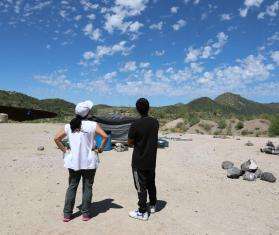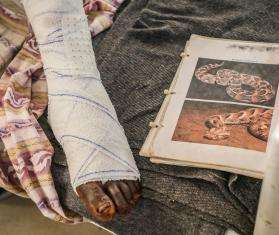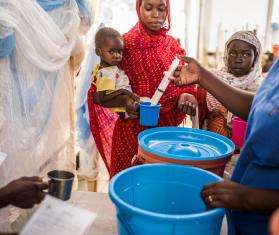On June 24, 2022, the United States Supreme Court’s ruling on Dobbs v. Jackson Women’s Health Organization overturned the landmark decision on Roe v. Wade and decades of legal precedent recognizing access to safe abortion care as a constitutional right.
In the two years since then, this decision has had far-reaching impacts on all people who can become pregnant in the US, as well as on health systems and health providers. Abortion has been banned entirely in 14 states across the US, while an additional 11 states have measures that make it harder to access safe abortion care.
Doctors Without Borders/Médecins Sans Frontières (MSF) is an international medical humanitarian organization that provides safe abortion care as a critical part of our comprehensive sexual and reproductive health care services. While we do not run medical operations in the US, as a frontline medical organization working in more than 70 countries worldwide, we see the devastating health consequences in places where people do not have access to safe and legal abortion.
MSF USA president Dr. Rasha Khoury, an ob-gyn based in Boston, issued this statement to mark two years since the Supreme Court ruling.
A few years ago, I was on assignment with MSF in a country where access to abortion is heavily restricted. One night a woman came in, bleeding heavily, with a life-threatening pregnancy complication.
The team gathered to discuss the best way to help our patient. In order to save her life, we needed to help her end the pregnancy safely. Not everyone on the team agreed with abortion. But despite our different values and convictions, we were united by a fundamental truth: That we were all there to save this patient’s life and limit her suffering.
We were able to provide a safe abortion, and as a result this woman survived. If she had not been able to get an abortion, she would have died.
This patient’s experience was not an isolated incident. Pregnancy can be dangerous, and people who are denied access to safe abortion care are at a greater risk of potentially life-threatening complications than those who are able to access abortion care.
In many of the places MSF works, conflict, exclusion, or environmental factors can make it difficult for people to access safe abortion care. In the US, abortion bans and restrictions have had a similar effect, creating barriers and delays for people attempting to get lifesaving care.
When abortion is illegal and restricted, all aspects of sexual, reproductive, and maternal health are impacted. A health care provider who is afraid of legal risks might delay care for the management of a miscarriage, an ectopic pregnancy, or a severe fetal or maternal diagnosis.
When people are forced to carry an unintended or complicated pregnancy to term, they are also more likely to seek out unsafe ways to end that pregnancy, putting them at even greater risk of injury or death.
At MSF, we see firsthand the ways that restricting access to abortion harms the health and wellbeing of the people who need it. Anyone who seeks an abortion—no matter their reason—is deserving of high quality and dignified care.
In 2022, MSF provided 44,900 safe abortions to patients in 36 countries. We also provided post-abortion care to 25,130 people for abortion-related concerns and complications, most of which were related to unsafe abortion.
At MSF, we recognize that it is not the role of health providers to scrutinize the reasons why someone might seek an abortion. It’s our job to respect our patients’ decisions, provide them with accurate and comprehensive information about their health, and provide safe and high-quality care.
Today, we say again: Safe abortion care is essential health care, and it should be accessible to everyone, everywhere.
About Dr. Rasha Khoury
Dr. Rasha Khoury is a Palestinian American ob-gyn and president of MSF USA. She has completed six surgical assignments with MSF. Dr. Khoury completed her residency training in obstetrics and gynecology at the University of California, San Francisco, and pursued subspecialty training in complex family planning and global women's health at Brigham and Women's Hospital, where she also received her master's in public health. She currently works at Boston Medical Center, a hospital caring for patients from disinvested communities—including many people who have been forcibly displaced from countries across Latin America and the Caribbean.




